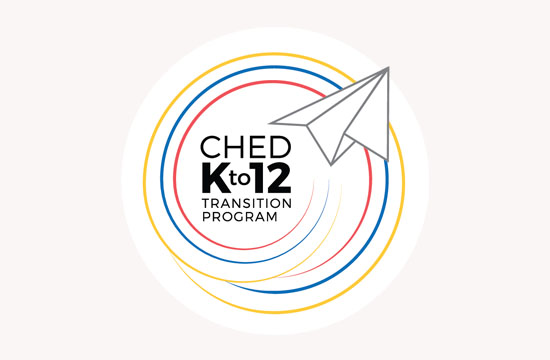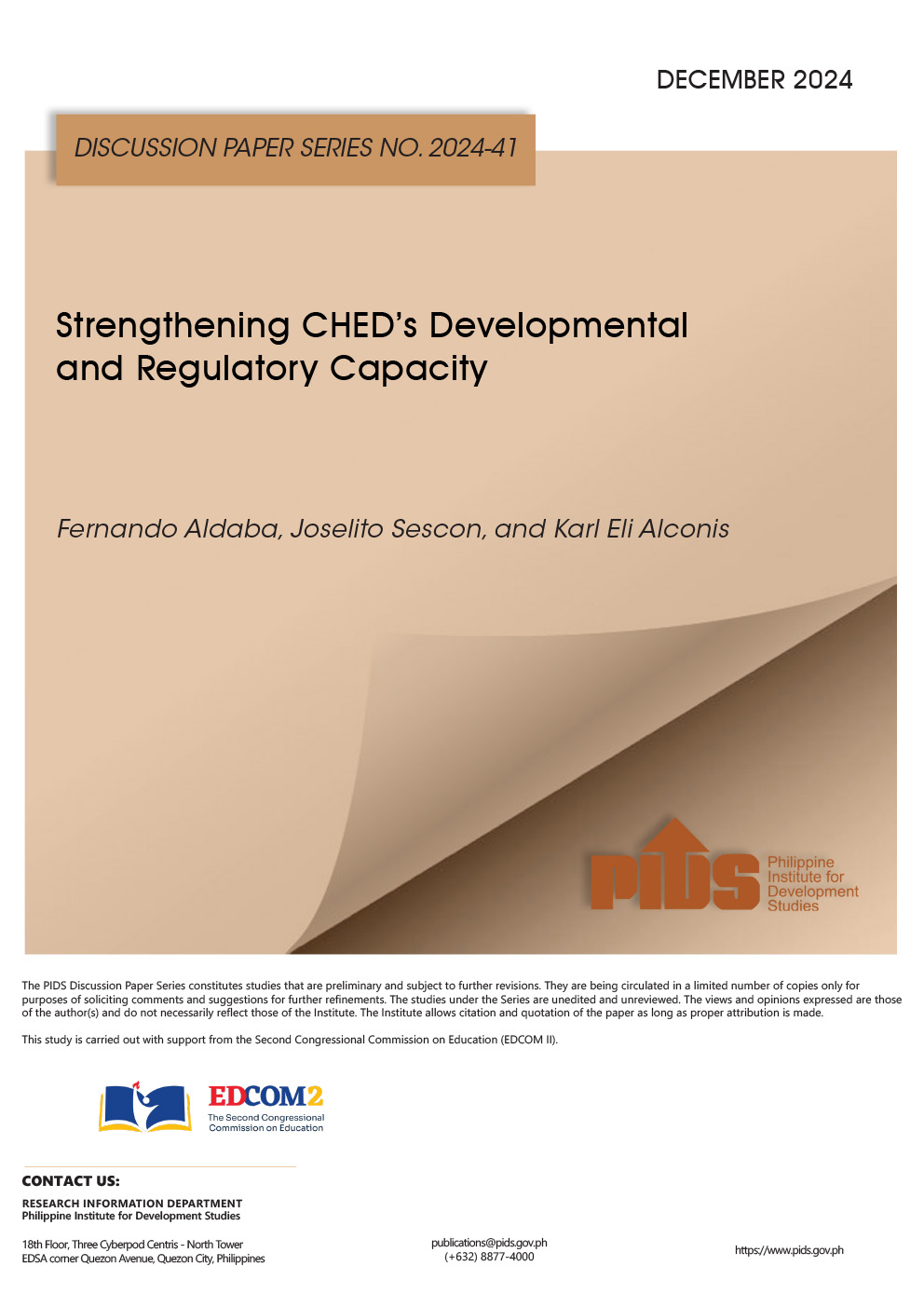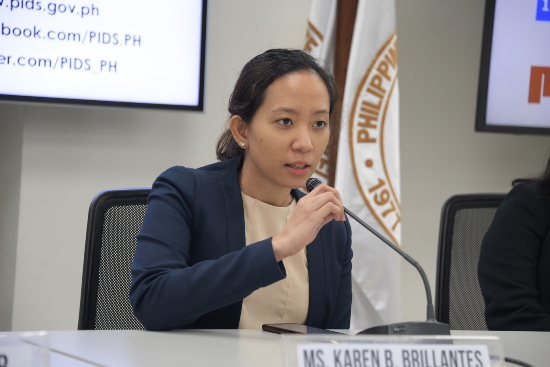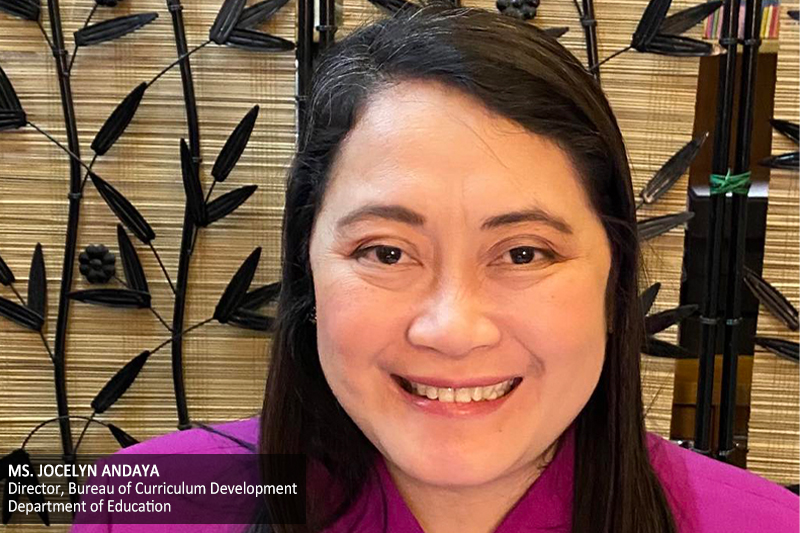
The K to 12 Transition Program of the Commission on Higher Education (CHED) has been mired in administrative issues, hampering the country’s smooth transition to the K to 12 Program, a study by the Philippine Institute for Development Studies (PIDS) revealed.
The K to 12 Transition Program was established in 2015 to mitigate the negative impacts of and ensure a smooth transition to the K to 12 Program. It was aimed to assist higher education institutions in updating their curriculum. More importantly, it was intended to assist faculty members, who are affected by the program, by giving them opportunities for professional development, such as international and local scholarships for graduate studies and training programs.
The study, authored by PIDS Consultant Alex Brillantes Jr, conducted a process evaluation of the transition program from July to December 2017 through a series of interviews and focus group discussions, as well as reviews of documents among K to 12 stakeholders.
According to Brillantes, one of the major problems faced by the program was the inadequate preparation of CHED to implement it. He surmised that this could be because the K to 12 program was initially seen by CHED as a program that should be led by the Department of Education.
Moreover, the study noted that the CHED’s Program Management Unit (PMU), the one responsible for operating the K to 12 Transition Program, had a difficult time adjusting to the demands of the program due to the high volume of work that came with its rollout.
These problems have resulted in delays in the processing of applications for scholarships and grants. Moreover, the delays in processing allowances had forced some scholars to drop out of the program.
Brillantes also noted the insufficiency of regular plantilla positions for CHED staff “despite the massive volume of work” given to them, resulting in uneven volume of workload assigned to some staff. For example, in the unit handling the local scholarship applications, “the current ratio of project technical staff to local scholarship applications is 1 to 1,384,” Brillantes said.
The lack of an automated system for processing applications and the inadequate record-keeping system have led to misplacement of documents submitted by the applicants, the study added.
Gaps were also seen in the program’s monitoring and evaluation system.
Nevertheless, the challenges faced by the K to 12 Transition Program have served as a learning process for CHED, pushing it to implement reforms. These, however, have been overshadowed by the negative perceptions of the program due to the experiences of applicants and grantees, Brillantes said.
To further strengthen its reforms, Brillantes urged CHED to institutionalize a continuing review of the program’s policies with stakeholders to ensure continuous improvement.
Moreover, Brillantes said CHED should continue building the capacities of its PMU staff on basic government accountability mechanisms and procedures. It should also improve its internal communication system as well as its communication and exchange with all stakeholders.
He also urged CHED to request for regular plantilla positions from the Department of Budget and Management to augment its manpower needs. ###
This study is based on the PIDS policy note titled “A process evaluation of the K to 12 program”.
The K to 12 Transition Program was established in 2015 to mitigate the negative impacts of and ensure a smooth transition to the K to 12 Program. It was aimed to assist higher education institutions in updating their curriculum. More importantly, it was intended to assist faculty members, who are affected by the program, by giving them opportunities for professional development, such as international and local scholarships for graduate studies and training programs.
The study, authored by PIDS Consultant Alex Brillantes Jr, conducted a process evaluation of the transition program from July to December 2017 through a series of interviews and focus group discussions, as well as reviews of documents among K to 12 stakeholders.
According to Brillantes, one of the major problems faced by the program was the inadequate preparation of CHED to implement it. He surmised that this could be because the K to 12 program was initially seen by CHED as a program that should be led by the Department of Education.
Moreover, the study noted that the CHED’s Program Management Unit (PMU), the one responsible for operating the K to 12 Transition Program, had a difficult time adjusting to the demands of the program due to the high volume of work that came with its rollout.
These problems have resulted in delays in the processing of applications for scholarships and grants. Moreover, the delays in processing allowances had forced some scholars to drop out of the program.
Brillantes also noted the insufficiency of regular plantilla positions for CHED staff “despite the massive volume of work” given to them, resulting in uneven volume of workload assigned to some staff. For example, in the unit handling the local scholarship applications, “the current ratio of project technical staff to local scholarship applications is 1 to 1,384,” Brillantes said.
The lack of an automated system for processing applications and the inadequate record-keeping system have led to misplacement of documents submitted by the applicants, the study added.
Gaps were also seen in the program’s monitoring and evaluation system.
Nevertheless, the challenges faced by the K to 12 Transition Program have served as a learning process for CHED, pushing it to implement reforms. These, however, have been overshadowed by the negative perceptions of the program due to the experiences of applicants and grantees, Brillantes said.
To further strengthen its reforms, Brillantes urged CHED to institutionalize a continuing review of the program’s policies with stakeholders to ensure continuous improvement.
Moreover, Brillantes said CHED should continue building the capacities of its PMU staff on basic government accountability mechanisms and procedures. It should also improve its internal communication system as well as its communication and exchange with all stakeholders.
He also urged CHED to request for regular plantilla positions from the Department of Budget and Management to augment its manpower needs. ###
This study is based on the PIDS policy note titled “A process evaluation of the K to 12 program”.












